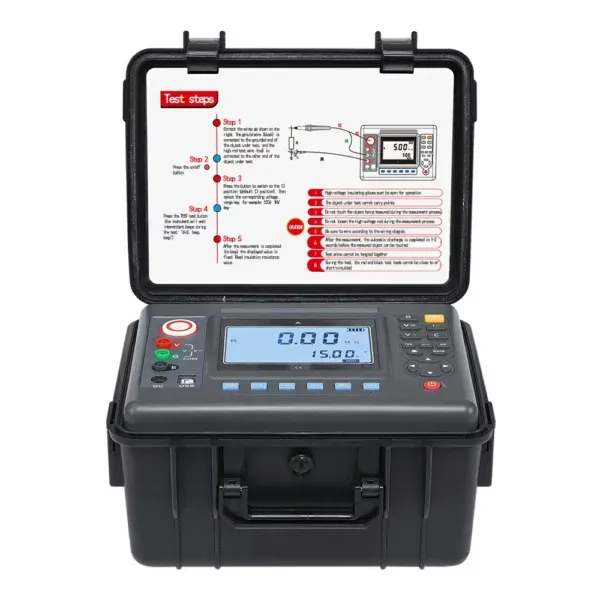TEL:
+86-0312-3189593
 English
English

Telephone:0312-3189593

Email:sales@oil-tester.com

-
 Afrikaans
Afrikaans -
 Albanian
Albanian -
 Amharic
Amharic -
 Arabic
Arabic -
 Armenian
Armenian -
 Azerbaijani
Azerbaijani -
 Basque
Basque -
 Belarusian
Belarusian -
 Bengali
Bengali -
 Bosnian
Bosnian -
 Bulgarian
Bulgarian -
 Catalan
Catalan -
 Cebuano
Cebuano -
 China
China -
 China (Taiwan)
China (Taiwan) -
 Corsican
Corsican -
 Croatian
Croatian -
 Czech
Czech -
 Danish
Danish -
 Dutch
Dutch -
 English
English -
 Esperanto
Esperanto -
 Estonian
Estonian -
 Finnish
Finnish -
 French
French -
 Frisian
Frisian -
 Galician
Galician -
 Georgian
Georgian -
 German
German -
 Greek
Greek -
 Gujarati
Gujarati -
 Haitian Creole
Haitian Creole -
 hausa
hausa -
 hawaiian
hawaiian -
 Hebrew
Hebrew -
 Hindi
Hindi -
 Miao
Miao -
 Hungarian
Hungarian -
 Icelandic
Icelandic -
 igbo
igbo -
 Indonesian
Indonesian -
 irish
irish -
 Italian
Italian -
 Japanese
Japanese -
 Javanese
Javanese -
 Kannada
Kannada -
 kazakh
kazakh -
 Khmer
Khmer -
 Rwandese
Rwandese -
 Korean
Korean -
 Kurdish
Kurdish -
 Kyrgyz
Kyrgyz -
 Lao
Lao -
 Latin
Latin -
 Latvian
Latvian -
 Lithuanian
Lithuanian -
 Luxembourgish
Luxembourgish -
 Macedonian
Macedonian -
 Malgashi
Malgashi -
 Malay
Malay -
 Malayalam
Malayalam -
 Maltese
Maltese -
 Maori
Maori -
 Marathi
Marathi -
 Mongolian
Mongolian -
 Myanmar
Myanmar -
 Nepali
Nepali -
 Norwegian
Norwegian -
 Norwegian
Norwegian -
 Occitan
Occitan -
 Pashto
Pashto -
 Persian
Persian -
 Polish
Polish -
 Portuguese
Portuguese -
 Punjabi
Punjabi -
 Romanian
Romanian -
 Russian
Russian -
 Samoan
Samoan -
 Scottish Gaelic
Scottish Gaelic -
 Serbian
Serbian -
 Sesotho
Sesotho -
 Shona
Shona -
 Sindhi
Sindhi -
 Sinhala
Sinhala -
 Slovak
Slovak -
 Slovenian
Slovenian -
 Somali
Somali -
 Spanish
Spanish -
 Sundanese
Sundanese -
 Swahili
Swahili -
 Swedish
Swedish -
 Tagalog
Tagalog -
 Tajik
Tajik -
 Tamil
Tamil -
 Tatar
Tatar -
 Telugu
Telugu -
 Thai
Thai -
 Turkish
Turkish -
 Turkmen
Turkmen -
 Ukrainian
Ukrainian -
 Urdu
Urdu -
 Uighur
Uighur -
 Uzbek
Uzbek -
 Vietnamese
Vietnamese -
 Welsh
Welsh -
 Bantu
Bantu -
 Yiddish
Yiddish -
 Yoruba
Yoruba -
 Zulu
Zulu
Th2 . 05, 2025 01:36
Back to list
dry type transformer testing
Dry type transformers play a pivotal role in countless applications, from industrial complexes to residential buildings, due to their safety features and minimal maintenance requirements. While these transformers are known for their reliability, ensuring optimum performance requires rigorous testing and routine maintenance. Conducting comprehensive tests on dry type transformers not only extends their operational life but also guarantees energy efficiency, safety, and cost-effectiveness.
Trustworthiness is the foundation of a successful testing regime. Accurate, honest assessments and transparent reporting of test results cultivate trust between service providers and clients. Clients are more likely to act on recommendations when they believe in the integrity and correctness of the insights provided. Trust is bolstered by the continuous training of technicians and the use of calibrated, industry-approved testing equipment. Moreover, clear communication of potential risks, alongside practical solutions, demonstrates a service-oriented approach that prioritizes the client's operational wellbeing. In terms of product optimization, regular testing confers several tangible benefits upon dry type transformers. Tests can highlight issues like partial discharges and harmonic distortions, which, if resolved timely, can enhance performance, reduce energy consumption, and extend the device's lifespan. These advantages translate into significantly reduced operational costs and increased return on investment, affirming the value proposition of regular transformer testing. In conclusion, the testing of dry type transformers is not merely a procedural formality but an indispensable practice that combines the forces of experience, expertise, authoritativeness, and trustworthiness. It engenders products that conform to safety standards, promote energy efficiency, and uphold the reliability expected in modern electrical infrastructure. Through knowledgeable inspection and detailed evaluation, dry type transformer testing safeguards against unforeseen failures, secures energy supply continuity, and enhances overall safety, offering substantial advantages to operators and users alike.


Trustworthiness is the foundation of a successful testing regime. Accurate, honest assessments and transparent reporting of test results cultivate trust between service providers and clients. Clients are more likely to act on recommendations when they believe in the integrity and correctness of the insights provided. Trust is bolstered by the continuous training of technicians and the use of calibrated, industry-approved testing equipment. Moreover, clear communication of potential risks, alongside practical solutions, demonstrates a service-oriented approach that prioritizes the client's operational wellbeing. In terms of product optimization, regular testing confers several tangible benefits upon dry type transformers. Tests can highlight issues like partial discharges and harmonic distortions, which, if resolved timely, can enhance performance, reduce energy consumption, and extend the device's lifespan. These advantages translate into significantly reduced operational costs and increased return on investment, affirming the value proposition of regular transformer testing. In conclusion, the testing of dry type transformers is not merely a procedural formality but an indispensable practice that combines the forces of experience, expertise, authoritativeness, and trustworthiness. It engenders products that conform to safety standards, promote energy efficiency, and uphold the reliability expected in modern electrical infrastructure. Through knowledgeable inspection and detailed evaluation, dry type transformer testing safeguards against unforeseen failures, secures energy supply continuity, and enhances overall safety, offering substantial advantages to operators and users alike.
Next:
Latest news
-
Using Distillation Range Testers in the Food and Beverage IndustryNewsApr.16,2025
-
The Impact of IoT on Distillation Range Tester PerformanceNewsApr.16,2025
-
The Best Distillation Range Testers for Extreme ConditionsNewsApr.16,2025
-
How Distillation Range Testers Save Time and MoneyNewsApr.16,2025
-
Distillation Devices for Advanced Separation TechniquesNewsApr.16,2025
-
Common Mistakes to Avoid When Using a Distillation Range TesterNewsApr.16,2025



